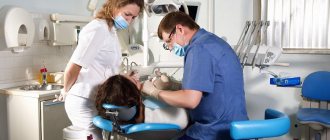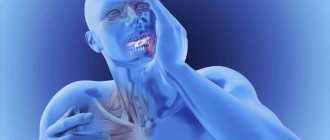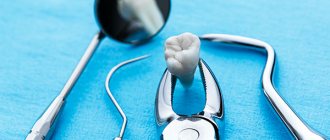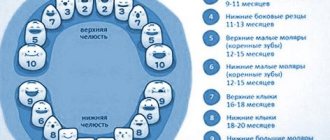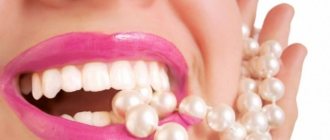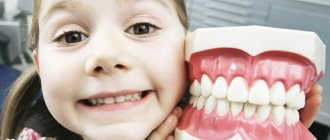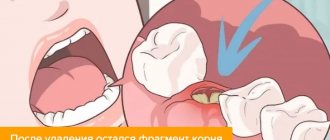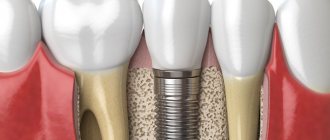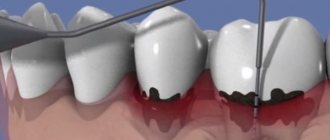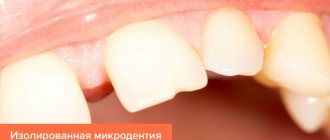Timely detection and treatment of dental diseases is considered a necessary and important condition for maintaining dental health. Even with careful daily oral hygiene, no one can be protected from the development of severe diseases of the teeth and gums, which a preventive examination at the dentist will help identify, because at the initial stage the disease can develop almost asymptomatically.
Experts strongly recommend undergoing a professional examination every six months, even without visible dental problems. Many people are interested in the question: Why exactly after six months? Based on numerous studies, scientists have concluded that this period is optimal for most oral diseases to begin their clinical manifestation. Therefore, they are easy to diagnose and treat because they are in the primary stage of development.
Of course, today the level of dental care is very high, which makes it possible to restore even severely damaged teeth and cope with any ailments of the oral cavity. However, it is better to prevent the disease than to treat it later in a long and tedious manner. Preventive dentistry is designed to recognize pathology in advance and eliminate it as soon as possible.
Mistake number 1.
The doctor was not prepared for the patient.
What should Svetlana Nikolaevna have done?
- Collect all the information from the administrator as much as possible. In most cases, patients already tell the administrator where they are hurting, this will give them the opportunity to calmly go through all the possible diagnosis options in their head.
- Calmly think through your actions, you can even write a cheat sheet:
- I enter a resourceful state of self-confidence;
- Getting acquainted;
- I question the patient carefully;
- I take a photo;
- I carefully examine the photograph;
- If necessary, I gather a consultation. It's better to look stupid in front of a colleague than to harm a patient.
- I discuss the diagnosis with the patient and sign all the documents.
Rest.
Constantly immersing yourself in work will not give effective results. Don't forget to rest when changing your occupation. Research has shown that the technique works great in any profession. Switch from mental stress to physical stress and vice versa. Many successful dentists combine their day job with regular exercise. During breaks, you can distract yourself by drawing, a short walk, or cooking. Rest allows you to clear your thoughts and increase productivity.
Mistake number 2.
Panic turns off the brain.
Panic gripped the doctor from the very beginning. Each of us feels a rush of adrenaline in our blood. We doctors must be able to manage this. The easiest way is to switch your attention to your breathing for a few seconds and deliberately begin to breathe more slowly. Careful preparation, by the way, is also a great way to reduce stress. Switching to something familiar also works great: for example, you can and should fill out a patient’s dental chart. This will calm you down and prevent you from missing something important. Find your own way to calm your brain. You can read a lot of useful information about how the brain works in David Rock’s book “The Brain. Instructions for use"
How is the inspection carried out?
An experienced specialist evaluates a person’s appearance from a professional point of view as soon as the patient crosses the threshold of the clinic. A qualified doctor can notice the condition of the bite, the presence of adentia, diseases of the temporomandibular joints and internal organs. An examination in the dentist's chair consists of the following stages:
Collecting patient complaints and finding out the history of dental diseases;
During the conversation, the doctor evaluates the relationship of the jaws, bite, oral function, articulation, changes in the facial skeleton, and the presence of orthopedic structures;
The doctor can palpate the submandibular lymph nodes, assess the symmetry of the face, and determine the type of breathing;
During an intraoral examination, the condition of the soft tissues of the gums and the correct attachment of the frenulum of the lips and tongue are assessed;
During a medical examination of the dentition, the condition of each tooth is determined from all sides, the presence of carious cavities and non-carious lesions of hard tissues. The doctor uses a probe, a mirror, a water gun and an air gun;
If a disease is present, the cause of the problem is determined and a method of treatment is proposed;
Hygiene indices are determined to assess the state of dental care and select hygiene products.
Mistake number 4
The doctor forgets to sign and discuss the informed consent form.
A young doctor usually believes that if he admits to the patient in advance that the treatment result may not be ideal, this will undermine the patient’s trust in the doctor. In fact, it's exactly the opposite. Anyone can have an instrument break in the canal, anesthesia can result in complications, and when removing upper teeth, a connection with the maxillary sinus can form, and even a piece of the root can fly into the sinus of the most experienced doctor. But! If the patient is warned about this, he will take it calmly. Both he and the doctor will have less stress, and the doctor's reputation will not suffer. And most importantly, the doctor will be able to calmly help the patient.
The importance of visiting the dentist
Regular examination by a dentist helps keep teeth healthy, avoiding radical treatment methods that involve removing a nerve or even the entire tooth. Often, in the absence of pronounced symptoms, a pathological process may occur in the tissues, for example, chronic pulpitis, periodontitis, or the development of a cyst.
Frequent dental examinations are especially important for those who suffer from chronic systemic diseases, such as diabetes. At the same time, the tissues of the body are characterized by increased vulnerability, which means that teeth are more susceptible to destruction.
Wearing braces is also an important reason to visit the dental office every six months, since oral hygiene in the presence of such structures is significantly complicated. Dentures and implants also require frequent checks.
It is also recommended for pregnant women to undergo regular dental examinations. During this period, inflammation should not be allowed to develop, which is why it is so important to identify all dental problems at the initial stage and eliminate them in the most gentle way possible.
We invite you to a preventive examination at the Dent clinic, during which you can find out the opinion of a specialist about the health of your teeth and oral cavity. From Monday to Saturday, qualified staff, polite staff and rooms equipped to modern standards await you. Call or make an appointment directly on the website.
Mistake number 5
The doctor does not tell the truth to the patient.
We interrupted the story with Svetlana Nikolaevna at the moment when she was thinking: should she tell the patient the truth? Definitely say! Feel free to look the patient in the eye and speak. Take textbooks; they always have many pages devoted to complications. This means they happen, and there is no escape from it. Anything is possible. It will be worse for your reputation if another dentist tells the truth to the patient. It will be worse for the patient if your silence and inaction worsens his health. And we all want our patients to be healthy.
Let's return to our young doctor. Svetlana Nikolaevna remembered about the breathing exercises, calmed her brain and decided to examine the hole again. This is not a connection with the sinus, it is a cyst cavity with a characteristic discharge. And here is a piece of the root. Oh! How wonderfully it all ended. Now the doctor is in a great mood. The brain has stopped panicking and can evaluate the situation critically. The doctor refers the patient to an otolaryngologist and says goodbye to him contentedly.
What hasn't the doctor done yet? One simple secret action
. It provides dense patient scheduling for both novice and experienced dentists. Write a comment of 4 words or more under the last post on our Instagram @doctorgutorova or @vakhrinairina, and we will send you the main secret of a dense recording.
Even more useful in our practical courses ⤵
Probing
This research method can be carried out to evaluate the reliability and density of the enamel of real teeth and artificial crowns. To do this, the dentist uses an instrument called a probe. With its help, it is possible to determine the presence of carious cavities and the stage of tissue damage. The method is also actively used for the diagnosis of other non-carious diseases, for example, hypoplasia, erosion, fluorosis, etc.
Probing is an absolutely painless and safe process. To check your teeth, the doctor simply needs to run the blunt end of his instrument over the surface of the enamel. This allows you to find irregularities and defects, determine density and hardness. This device can also be used to detect the presence of gum pockets.
Additionally, the dentist can check for gaps between the gum and the crown (or between healthy areas of enamel and the filling material). If there is a severe gap, the filling will need to be reinstalled.
Required education and ways to get a profession
Applicants who want to become dentists must enroll in medical universities that have dental faculties. In Ukraine, such educational institutions are located in almost every regional center.
A practicing dentist needs to improve his professional level, become familiar with new technologies and methods of treating dental diseases. To do this, he must attend advanced training courses every 5 years at training centers licensed by the Ministry of Education and Science of Ukraine.
Universities
The largest higher educational institutions in the country engaged in training specialists in the field of dentistry are:
- National Medical University named after. Bogomolets (Kyiv);
- Bukovinian State Medical University (Chernivtsi);
- Ukrainian Dental Medical Academy (Poltava);
- Vinnytsia National Medical University named after. Pirogov;
- Dnipro State Medical University of the Ministry of Health of Ukraine;
- Lviv Medical Academy named after. Krupinsky;
- Kharkov State Medical University;
- International Academy of Ecology and Medicine (Kyiv).
The duration of study at dental faculties of Ukrainian universities is 5 years. The form of training is full-time and in most cases contractual (paid).
You can enter a university or academy after completing secondary education. The applicant will need an EPE certificate in the following school subjects:
- mathematics;
- Ukrainian language and literature;
- biology, chemistry, physics (any one to choose from).
To be admitted to the Faculty of Dentistry, you must score at least 150 points based on the results of the external assessment.
Courses
The following educational institutions offer advanced training courses for dentists:
- Institute of Progressive Dental Technologies (Kyiv);
- Dental Educational Center Fenestra (Kyiv);
- Amel Academy Training Center (Dnepr);
- Republican Center for Dental Implantation (Kharkov);
- Training center B&B Dental Ukraine (Odessa).
Doctors can also improve their qualifications through courses offered by many Ukrainian medical universities.
History of the profession
Dentistry is one of the oldest medical specialties. Devices for treating and extracting teeth, reminiscent of modern tools, have been repeatedly discovered by archaeologists in the tombs of Egyptian pharaohs. Human skulls with crowns on teeth were also found here, indicating the high level of skill of ancient healers.
In ancient Greece, Hippocrates treated dental diseases. Doctor who lived in the 5th–4th centuries. BC e., to get rid of toothache, he advised applying a hot piece of iron to the gum. This method today causes bewilderment and shock, but in ancient times, when people often died from flux, it helped reduce mortality.
The countries of the Middle East have contributed to the development of dentistry. At the turn of the 4th–5th centuries. toothbrushes and forceps were widely used here, with the help of which they tore molars, incisors and fangs damaged by caries. Soon the first drugs for relieving toothache appeared in the Middle East. They became opium and arsenic. From then on, they stopped removing diseased teeth without first trying to cure them. The development of dentistry in the region led to the fact that in the middle of the 7th century. The first fillings were invented here.
Dentistry began to be trained at a professional level at the end of the 19th century, after an educational institution for dentists opened in St. Petersburg. Soon such schools began to open throughout the Russian Empire.
Career
Opening your own dental office is the main goal of most dentists. Private dental offices, where new equipment is installed and a high level of service is provided, are becoming increasingly popular among patients. People are more willing to seek help from paid clinics than from government ones. Because paid dentistry always means high quality services.
To become a recognizable and successful doctor, you need to master all modern techniques and be a general specialist (therapist, orthodontist, orthopedist, surgeon). You can improve your qualifications or undergo career guidance at the Academy of Professional Standards.
Retraining is available only to specialists with a higher medical education in dentistry. The course lasts 3 months. Training takes place in full-time and part-time format using distance technologies. Upon completion of studies, the specialist receives a document of the established form.
The following areas for professional retraining are available: pediatric dentistry, general dentistry, orthopedic, therapeutic, surgical.
